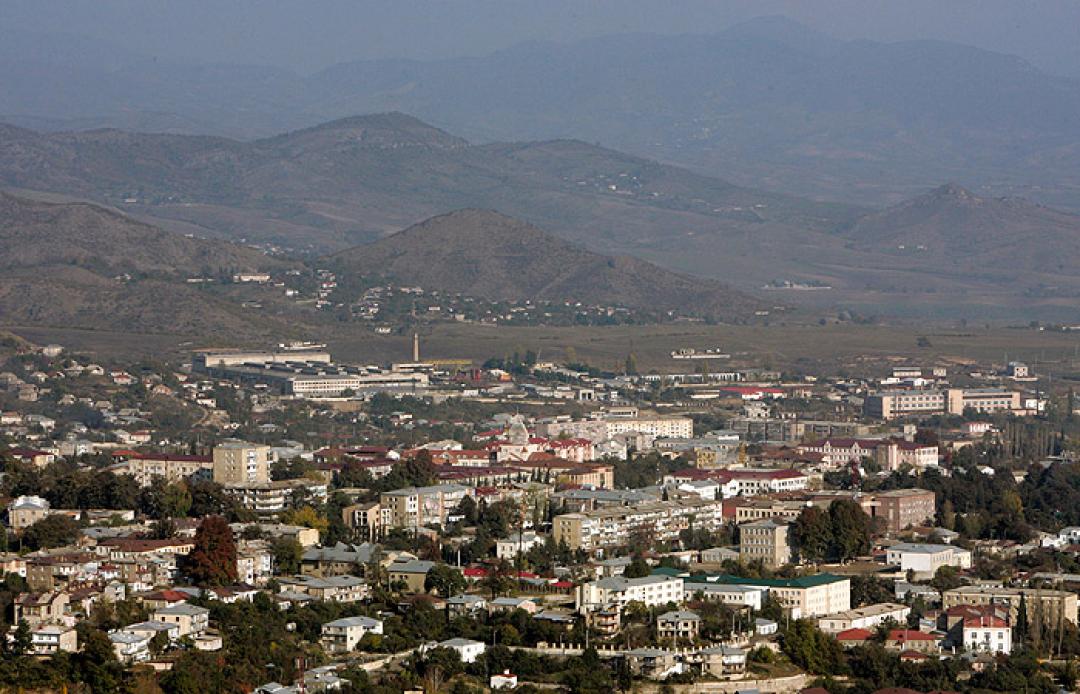
Nagorno-Karabakh: latest developments

On 24 November, Azerbaijan’s President Ilham Aliyev stated that three main factors contributed to Azerbaijan’s victory in the Nagorno-Karabakh war, namely the legal framework, the victory on the information front and Azerbaijan’s economic strength. “We [Azerbaijan] have achieved this thanks to our unity and our strength. Nobody helped us. On the contrary, they only wanted to hamper us. I will talk about this in detail one day,” Aliyev added.
The Azerbaijani government established the Coordination Headquarters for Nagorno-Karabakh, tasked with solving the socio-economic, humanitarian and organisational problems on the territories which foresee Azerbaijani control under the trilateral agreement. The construction of the Ahmadbayli-Fuzuli-Shusha highway was officially launched, as well as the official start for the designing and construction of the Barda-Aghdam railway line.
The United Nations (UN) said that its specialists were ready to work jointly with Russia to assess the volume of humanitarian assistance needed in Nagorno-Karabakh. The UN Secretary-General spokesperson Stephane Dujarric also said that the Secretary-General Antonio Guterres had telephone conversations with the Armenian and Azerbaijani foreign ministers, Ara Ayvazyan and Jehyun Bayramov, to stress the organisation’s readiness to offer humanitarian assistance to the countries. The United Nations Mine Action Service (UNMAS) also announced that it was working on emergency deployment in Nagorno-Karabakh and plans to launch a mission to assess the needs in early December.
The President of the International Red Cross Committee (ICRC) Peter Mauer said that the ICRC would significantly increase the composition of its mission in the region, adding that a decision has already been made to increase the ICRC budget in regard to Nagorno-Karabakh. “If before the war the budget of our mission in the region was 10 million Swiss francs (almost $ 11 million), then next year it will be 45 million Swiss francs ($ 49.4 million). That is, we will quadruple our presence. We had quite a few people there. We are now planning to send an additional 400-500 people to the region,” stated Maurer.
The task of the ICRC mission staff will be to help victims from all sides of the conflict. One of the urgent tasks would be to search and identify the bodies of the victims. According to Mauer, each side has found bodies in the territory under their control and which are easy to find. “The difficulty lies in working on the very line of contact, on the front line, where there were battles, there are mines; it is very difficult to find bodies there,” he pointed out.
The Prosecutor General’s Office of Azerbaijan commented on the footage that had emerged online of Azerbaijani servicemen insulting the bodies of Armenian servicemen killed during the fighting as well as inhumane treatment of captured Armenian servicemen. The Prosecutor’s Office said they had analysed and studied the videos along with the Military Prosecutor's Office and determined that many of the videos were fake. They added that they also had ‘serious doubts’ that the events shown in the videos were real. However, if they conclude the videos were real then ‘the perpetrators of such illegal acts will be identified and brought to justice, and the public will be provided with detailed information on the progress and results of the investigation.’ The international investigative outlet Bellingcat investigated the videos, tracing them to Azerbaijani Telegram channels and concluding that they were likely genuine. They also geolocated the videos to a square in the city of Hadrut which was captured by Azerbaijani forces during the course of the war.
It was also reported that the Azerbaijani law enforcement agencies have put former Armenian Minister of Defence Seyran Ohanyan on its wanted list and a criminal case was launched against him under Article 103 (genocide).
The Armenian government published a list of 121 settlements which would be transferred under Azerbaijani control following the signing of the trilateral agreement. The list includes 52 settlements located in the Lachin, Gubadli and Zangilan regions including the city of Zangilan and the village of Minjivan; 16 settlements from the Kelbajar region, including the city of Kelbajar; 35 settlements in the Khojavend region, including the village of Hadrut; 8 villages in the Terter region, 8 villages in the Aghdam and Khojaly regions, as well as the city of Shusha and the village of Dashalty in the Shusha region.
See Also


Simonyan: “Armenia Should Trade with Turkey and Azerbaijan Instead of Closing Borders”

Mirzoyan Meets US Deputy Assistant Secretary Joshua Huck

Azerbaijani President Holds Talks with UAE and German Business Delegations on Economic Cooperation

Grigoryan Confirms Armenia’s Readiness to Dissolve OSCE Minsk Group Upon Peace Treaty Signing

